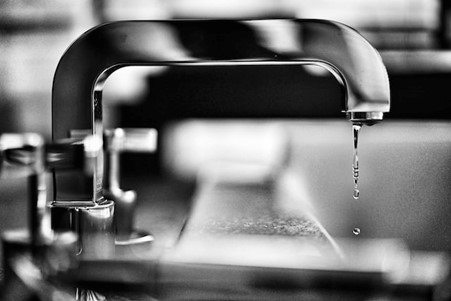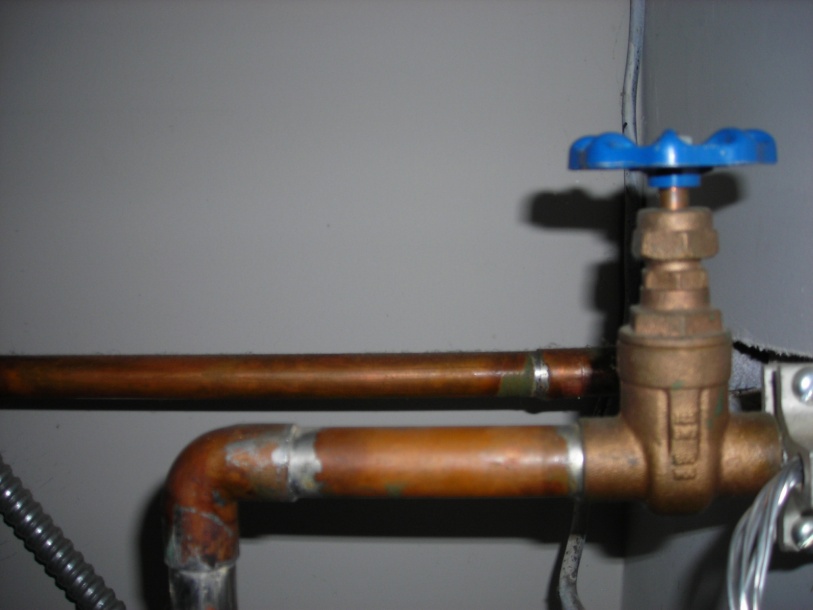Here down the page you'll find more worthwhile ideas about Plumbing Problems In Old Homes.

Older homes commonly include beauty, character, and history, however they can additionally bring a host of pipes problems. Whether you're taking care of aging pipes, low tide pressure, or leaks, knowing just how to attend to these typical problems is crucial to keeping a risk-free and functional home. In this guide, we'll check out the typical pipes challenges dealt with by older homes and supply practical services to keep your plumbing in leading shape.
Understanding Usual Pipes Issues
Aging Pipelines
Among one of the most common problems in older homes is aging pipelines. Depending upon the period in which your home was developed, the pipelines may be made from products that have degraded over time, such as galvanized steel, cast iron, and even lead. These products can rust, come to be fragile, or create leaks, causing water damage and prospective carcinogen.
Water High Quality Screening
Older pipes can influence the quality of your water. Conduct a water high quality examination to check for impurities such as lead, rust, or various other impurities that might be presented by maturing pipelines.
Solutions for Typical Pipes Issues
Replacing Aging Pipelines
If your home has old, deteriorating pipes, think about changing them with modern materials like copper or PEX. This can be a substantial investment, however it will certainly prevent future issues and improve the safety and security and reliability of your plumbing system.
Taking Care Of Low Water Stress
To deal with low tide stress, begin by cleansing or replacing old components and getting rid of mineral buildup in the pipes. If the issue continues, it might be necessary to replace sections of corroded pipes.
Repairing and Replacing Leaking Pipes
For small leaks, you can utilize pipe clamps or epoxy putty as a momentary solution. Nonetheless, it's finest to change dripping pipelines completely to prevent additional damages.
Upgrading Fixtures
Upgrading old fixtures to modern, water-efficient models can improve your home's plumbing efficiency and minimize water consumption. Search for components with the WaterSense tag for the very best efficiency.
Taking Care Of Pipe Corrosion
If your pipelines are worn away, changing them with corrosion-resistant products like copper, PVC, or PEX is the very best solution. Regular evaluations and water quality maintenance can aid protect against better deterioration.
Low Tide Pressure
If you're experiencing low water stress, maybe as a result of natural resources, rust inside the pipes, or old fixtures that are no longer operating effectively. This can be a major inconvenience, specifically in areas like showers and sinks.
Leaking Pipelines
Leakages are another constant problem in older homes, commonly triggered by rusty or worn-out pipelines. Also little leaks can lead to substantial water damages, mold and mildew growth, and increased water costs if not addressed without delay.
Outdated Components
Outdated pipes fixtures such as faucets, toilets, and showerheads not just look old yet might likewise be less reliable, prone to leakages, or incompatible with modern pipes standards.
Pipeline Corrosion
Deterioration is a common trouble in older pipes, specifically those made from galvanized steel or cast iron. Rusty pipelines can restrict water flow, cause staining, and eventually cause leaks or pipeline ruptureds.
Examining the Condition of Your Plumbing
Evaluating Visible Pipelines
Start by checking any noticeable pipelines in your home, such as those in cellars, crawl spaces, or under sinks. Search for indicators of corrosion, leakages, or corrosion, which can suggest underlying concerns.
Looking for Leaks
Look for leaks by checking locations around faucets, bathrooms, and under sinks. You can additionally monitor your water meter prior to and after a duration of no water use to find hidden leaks.
When to Call a Specialist
While some pipes problems can be taken care of with do it yourself services, there are times when it's finest to call in an expert. If you're managing significant leaks, substantial deterioration, or are unsure regarding the problem of your pipelines, an accredited plumber can supply experienced assessment and repair.
Preventive Maintenance Tips
Routine Examinations
Regularly examine your pipes system for indicators of damage. Catching issues early can stop pricey repairs down the line.
Water Pressure Guideline
Ensure your water stress is within the advised variety to stay clear of emphasizing your pipes and fixtures. A plumber can install a pressure regulator if needed.
Water Top Quality Upkeep
Set up water filters or softeners if your water top quality is poor. This can shield your pipelines and components from damage caused by hard water or contaminants.
Proactive Pipeline Substitute
If your home has older pipes, think about positive replacement before major problems occur. This can save you from emergency fixings and water damages.
Final thought
Taking care of pipes problems in older homes needs a combination of vigilance, preventive upkeep, and prompt upgrades. By comprehending the typical difficulties and understanding when to seek professional aid, you can guarantee your plumbing system remains functional and dependable for many years to find.
Common Plumbing Issues in Older Homes and How to Fix Them
Owning an older home in Australia comes with its unique charm and a set of challenges, especially when it comes to plumbing. The Sunshine Coast has many older properties that can harbour plumbing problems that aren t just inconvenient but potentially costly. Here s a look at some common plumbing issues in older homes and expert advice on how to handle them.
Outdated Piping Materials
Many older homes were built with galvanised steel, cast iron, or even lead pipes, materials that are far from ideal by today s standards. Galvanised pipes are prone to corrosion and clogging, while lead pipes pose serious health risks.
How to Fix:
Replacing old pipes is a job for a professional. Upgrading to copper or PVC piping not only enhances water quality and flow but also increases the property s safety and value. If you suspect your home has outdated materials, a licensed plumber can conduct a thorough inspection and recommend the best course of action.
Corrosion and Pipe Degradation
Over time, exposure to water and minerals can cause pipes to corrode, leading to leaks, bursts, and water contamination. Corrosion is especially common in homes over 50 years old.
How to Fix:
Regular inspections can catch early signs of corrosion. If corrosion is found, the affected section of piping often needs to be replaced. For homes with extensive corrosion, a complete plumbing overhaul might be necessary. It s crucial to consult with a plumbing expert to understand the extent of the issue.
Tree Root Intrusion
Older neighbourhoods usually have mature trees whose roots can intrude into pipe lines, causing blockages or damage. This is particularly problematic for sewer lines, where roots seek out water sources.
How to Fix:
A plumber can use a specialised camera to inspect sewer lines for root intrusion. If roots are a problem, methods like root cutting or hydro-jetting can clear the obstruction. In severe cases, part of the pipe may need replacing. Consider root barriers around the piping to prevent future issues.
Inadequate Water Pressure
Low water pressure in older homes can be due to various factors, including corroded water lines, sediment build-up in pipes, or outdated fixtures.
How to Fix:
First, check if the low pressure is isolated to one area or throughout the house. Replacing old fixtures can sometimes resolve the issue. However, if the problem is more widespread, it might be due to sediment or corrosion. Flushing the system or replacing the affected pipes usually restores normal pressure. Again, a professional assessment is advisable.
Outdated Fixtures
Older homes often feature fixtures that are not only visually dated but functionally inefficient. This includes everything from toilets and taps to showerheads and washing machine hoses.
How to Fix:
Updating these fixtures can improve both water efficiency and the aesthetic appeal of your home. Modern fixtures are designed to conserve water, which can significantly reduce your water bill and lessen your environmental impact.
Conclusion
Maintaining the plumbing in an older home requires a proactive approach. Regular checks and updates are key to preserving these beautiful properties. If you re facing plumbing issues in your older home, it s best to call on experienced professionals like Green & Gold Plumbing & Gas. With the right expertise, even the most daunting plumbing problems can be resolved, ensuring that your home s character is maintained while its functionality is enhanced.
https://gandgplumbing.com.au/common-plumbing-issues-in-older-homes-and-how-to-fix-them/

Do you enjoy reading up on Plumbing Issues in Older Properties and How to Fix Them? Try leaving a review further down. We'd be glad to see your suggestions about this content. We hope to see you back again soon. If you liked our post kindly be sure to pass it around. Thank you for your time spent reading it.
Click Here To Read More